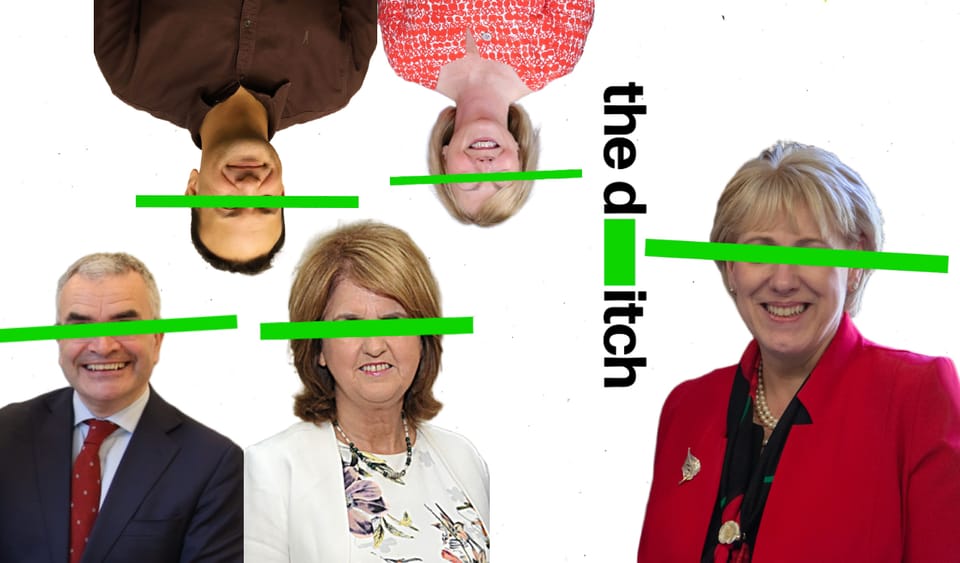By Alannah Uí Geargáin
There’s a common misconception that disabled people and carers are forgotten. I think that language is too passive and absolves, undeservedly, those who supposedly forget. Disabled people and carers are deliberately excluded because they’re not seen as an important cohort of voters. The press and government don’t think we have the political capital to make a real difference. We’re not given inches in the broadsheets because nobody cares about what we have to say until there’s an election and a government minister appears in a video with a disabled person whose life they will inevitably vote to make worse.
With less than a week to go until we vote for our next president, I am struck by the lack of media coverage of disability issues this election, particularly when a former social protection minister is in the running.
I was quite proactive about getting involved with Catherine Connolly’s campaign and, together with people I deeply respect and admire, we established Disabled People and Carers for Connolly. I remember our group chat lighting up when Jim Gavin dropped out because we thought disability would, this time, be an actual election issue.
Last year the Scrap the Green Paper Coalition had firmly outmanoeuvred Heather Humphreys by April 2024 and forced her to drop plans for a deeply harmful system rooted in ableist ideology.
The choice we were faced with seemed a perfect battleground for disabled people and carers’ rights: a candidate who supports medically testing disabled people to see how fit they are to work or one who has advocated for the abolition of carer- and disability-related means testing. We have a candidate who voted to seal the records of the mother and baby institutions – which housed both disabled mothers and disabled children – and one who stood beside survivors in their fight for justice and accountability. We can choose between a candidate who supported the attempt to make care a family rather than state responsibility and one who listened to and was led by disabled people’s opposition to that referendum.
Humphreys wants to be judged on her record? OK
Heather Humphreys asked to be judged on her ministerial record. I will do that from as a disabled person. She said in a campaign video that women need to support each other. As a disabled woman I have never felt represented by Heather Humphreys.
Her government oversaw a disability allowance payment at a rate below the poverty line. Disabled women face a higher likelihood of intimate partner violence and have reported their partners weaponising their dependence. Why isn’t anyone talking about her record on disability when it was such a significant part of her brief? And where was Heather Humphreys and her feelgood girlboss empowerment when those women needed her? I’ll tell you where she was: with her government colleagues considering new ways to make our lives worse.
Media aren't willing to question Humphreys on the activist campaign that forced her to drop her green paper. The coverage her backtrack gets tends to focus on the barbs between her and senator Tom Clonan – where are the disabled people who actually delivered this victory for our community? Journalists don’t seem willing to ask her how it felt to be beaten by the people with no resources, nothing to lose and no government PR machine.
Other questions media won’t ask: why did Humphreys sit in the Dáil while her party ignored parents desperate for school places for their disabled children; what did Humphreys do as social protection minister to help disabled people afford groceries without cutting other essentials; why is Humphreys trying to spin an absurd line that she was “brave” for dropping her green paper (rather than admit the truth, that the disabled community forced her to do so through action?)
We have taken on government and beaten them
Our Disabled People and Carers for Connolly event in the Helix about the UN Convention on the Rights of Persons with Disabilities and Ireland’s role in it was a perfect opportunity for media to engage with disability rights. We had a panel of strong disabled voices, the leader of Sinn Féin and, in Catherine Connolly, the potential future Irish president.
Connolly announced carers would be the first group of people invited to her Áras. Throughout the Irish state’s ongoing erasure of disabled people and their carers, here was a chance for some level of media redemption, for the press to help tell our stories. Instead they took some photos and published one article. It covered neither the initiative, nor the carers struggling to survive, nor the rallying cry that everything is a disability rights issue.
It did however cover an alleged jibe about Heather Humphreys from an unnamed canvasser – a single remark getting more coverage than disabled people being institutionalised in nursing homes and ageing carers wondering what will happen to their family members when they die. The story that deserved telling was that of a collective of people who have been completely ignored coming together and voicing a positive vision for the presidency. It wasn’t told.
I thought the days of underestimating disabled people were behind us after the defeat of the care referendum. Against all those state yes men, an authentic movement of disabled people and carers worked together to beat government. We exposed the referendum as another government attempt to escape accountability for failing disabled people and carers. With few resources, disabled people won. We ran a simple and informative campaign that told the truth – something government can’t or won’t do.
This election could have been fought solely on how disabled people and carers have been failed. These failures however don’t seem to truly matter to Irish media.
I was struck by one of the comments under a Disabled People and Carers for Connolly post. It said the poster had never seen such inclusive election material. I found it quite sad. Disabled people number more than 1 million in one form or another in Ireland. Government – and opposition – pay all that money for all those political advisers and social media managers and it’s still rare to see real inclusivity in political communications. It shouldn’t be the exception but the rule.
Disabled people aren’t just here for attempts at feelgood stories and carers aren’t just people to look at through a screen and say aren’t they great. We are real people with agency, with autonomy, with more political capital than we’re given credit for.
We have taken on government and beaten them.
We deserve respect, and if the establishment won’t give it to us, we’ll take it for ourselves.


